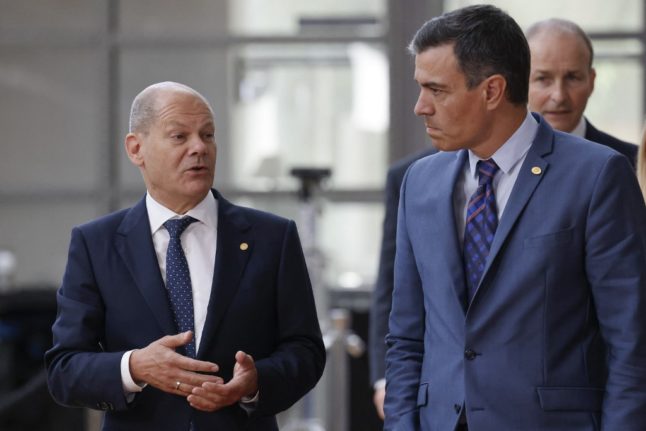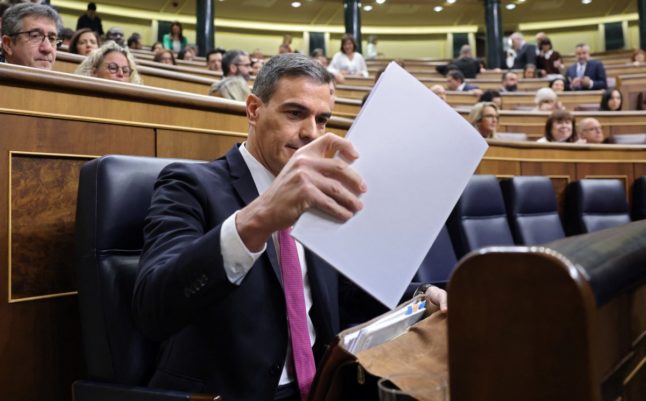The two leaders will meet for talks on Tuesday at the German government retreat in Meseberg castle, some 70 kilometres (45 miles) north of Berlin, where Sanchez will also attend a cabinet meeting chaired by Scholz.
The meeting comes as Europe struggles to reduce its dependence on Russian gas following its February invasion of Ukraine.
With Moscow cutting back on deliveries, EU nations are scrambling to avoid possible shortages this winter as gas and electricity prices soar.
In recent weeks, Spain and Germany’s stances on energy have come a lot closer, with Scholz backing plans for a gas pipeline linking the Iberian peninsula with central Europe to reduce reliance on Russian gas — a project
long championed by Madrid.
Sanchez’s office did not say what would be on the agenda at the August 30 visit which El Pais daily described as “a special invitation” extended by Scholz.
Madrid has for years pushed for such a pipeline and since the Ukraine war began, it has upped pressure for the revival of the defunct MidCat project linking the Iberian peninsula with France via the Catalan Pyrenees.
READ ALSO: How war in Ukraine is reviving France-Spain MidCat gas pipeline project
Launched in 2013, MidCat was abandoned six years later following a dispute over funding and a lack of support from France.
Germany is heavily reliant on Russian gas and with Moscow squeezing supplies, Europe’s biggest economy is racing to find alternatives.
Earlier this month, Scholz said an Iberian pipeline to central Europe could make “a massive contribution” to easing the supply crisis.
Spain currently has six liquefied natural gas (LNG) terminals for processing gas that arrives by sea which could help the EU boost imports.
But it only has two low-capacity links to France’s gas network, which has connections to the rest of Europe.
This week, while visiting Colombia, Sanchez raised the possibility of a “plan B” if no deal is reached with France over finishing the Pyrenees pipeline, evoking the idea of a pipeline with Italy.
Spanish media said Madrid was hoping that the Germany talks would help up pressure on Paris.
READ MORE:



 Please whitelist us to continue reading.
Please whitelist us to continue reading.
Member comments